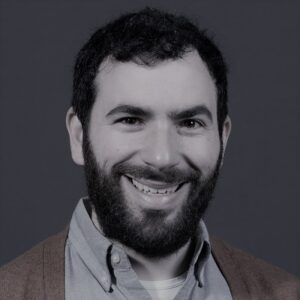Conférence plénière
Timely Interventions and Public Scholarship in Music Studies
In recent years, the phrase “public musicology” has become an oft-invoked buzzword, symbolizing a range of activities from blogposts to newspaper articles, tweets to podcasts, preconcert lectures to forensic testimony. What these activities share in common is a desire for scholars trained in music studies––not just musicology, but also ethnomusicology and music theory––to reach audiences outside the academy. In this talk, I examine several recent attempts at public scholarship in music studies––from blogs and thinkpieces to community engagement initiatives and activist fundraisers–––and discuss my own work writing about music for the New York Times and New Yorker, as well as hosting the podcast Sound Expertise. Such “timely interventions” provide frameworks through which to scrutinize how public scholarship can be productively and ethically deployed.
Master class
Music Scholarship and the Thinkpiece
One of the primary vehicles for productive discourse in the twenty-first century online ecosystem is the “thinkpiece”: a timely reflection that mixes analysis and opinion. Scholars in many disciplines have deployed this genre in order to advocate for their expertise in non-academic publications such as the New Yorker, Slate, and Vox. So, too, can music scholars: even if one’s research focuses on an esoteric and seemingly not “newsworthy” topic, there is often a way to conceptualize its relevancy to a broader audience. This workshop will involve brainstorming, conceptualizing, and “pitching” thinkpieces, allowing participants to reflect on how their scholarship can gain relevancy in a fast-paced online environment and, more broadly, act as a form of public service.
Biographie
William Robin is an assistant professor of musicology at the University of Maryland’s School of Music.At Maryland, William enthusiastically teaches courses for undergraduates and graduate students, including Survey of Music Literature (an expansive history of classical music for non-majors), Music History III (the final semester of the music history survey for majors, covering the Romantic era to the present), and seminars on public musicology and contemporary music.
He completed a PhD in musicology at the University of North Carolina at Chapel Hill in 2016 with a dissertation analyzing American new music in the twenty-first century through the lens of “indie classical,” focusing on New Amsterdam Records and the ensemble yMusic. His first book, Industry: Bang on a Can and New Music in the Marketplace, was published in February 2021 with Oxford University Press, and examines the new-music festival Bang on a Can and their participation in major institutional shifts in contemporary music in the 1980s and 1990s.

Photo by David Andrews
